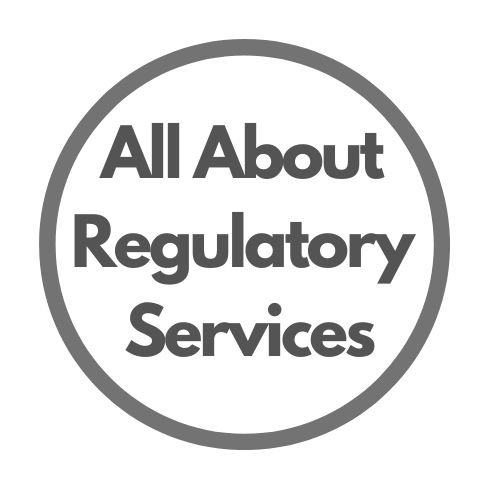Introduction: Central Drugs Standard Control Organization (CDSCO)
The Central Drugs Standard Control Organization plays a vital role in ensuring the safety, efficacy, and quality of pharmaceuticals, medical devices, cosmetics, and diagnostics in India. As the regulatory authority for drugs and healthcare products, This regulatory body is responsible for the approval of new drugs, clinical trials, and the enforcement of various regulations and guidelines. In this comprehensive article, we will explore the functions, responsibilities, and processes of Central Drug Authority, highlighting its significance in the Indian healthcare landscape.
Responsibility and Functions of CDSCO
This regulatory body is entrusted with several key functions and responsibilities to ensure the safety, efficacy, and quality of drugs and healthcare products. Some of the primary functions of CDSCO include:
- Granting approval for the import and manufacture of drugs and medical devices
- Conducting inspections and quality control checks of manufacturing facilities
- Regulating clinical trials and ensuring ethical practices
- Monitoring adverse drug reactions and managing pharmacovigilance
- Enforcing regulatory provisions and taking appropriate action against non-compliance
- Promoting and coordinating research and development activities in the pharmaceutical sector
- Collaborating with international regulatory agencies and organizations
CDSCO Approval Process / Regulatory Framework
Central Drugs Standard Control Organization operates under the umbrella of the Drugs and Cosmetics Act, 1940, and the Drugs and Cosmetics Rules, 1945. These legislations have the sugam portal regulatory framework for the manufacture, import, distribution, and sale of drugs, medical devices, cosmetics, and diagnostics in India. The approval process for drugs involves a rigorous evaluation of safety, efficacy, and quality data. The Central Drug Authority reviews applications submitted by pharmaceutical companies and conducts inspections to ensure compliance with Good Manufacturing Practices (GMP).
CDSCO In Clinical Trials and Drug Approval
Clinical trials are a crucial step in the development and approval of new drugs. This regulatory body regulates and monitors clinical trials to safeguard the rights and well-being of participants and ensure the scientific validity of the trials. Pharmaceutical companies must submit detailed protocols and obtain the necessary approvals before conducting clinical trials. The data generated from these trials are evaluated by this regulatory body to determine the safety and efficacy of the drug, leading to the granting of marketing approval.
Import / Export Regulations
Central Drug Authority regulates the import and export of drugs, medical devices, cosmetics, and diagnostics to ensure quality and safety. Importers and exporters are required to comply with specific documentation and quality control requirements. Central Drug Authority conducts inspections of import and manufacturing facilities to ensure adherence to the prescribed standards.
Quality Control and Inspection
Central Drug Authority is responsible for maintaining the quality of drugs and healthcare products available in the market. It conducts regular inspections of manufacturing facilities, testing laboratories, and distribution centers to ensure compliance with GMP. Quality control tests are performed on samples of drugs and medical devices to verify their safety, efficacy, and quality.
Pharmacovigilance and Post-Marketing Surveillance
Pharmacovigilance involves the monitoring and evaluation of adverse drug reactions (ADRs) to ensure patient safety. This Central Drug Authority maintains a robust pharmacovigilance program to collect, analyze, and assess ADRs. This information is crucial for identifying potential risks associated with drugs and taking appropriate regulatory actions. Post-marketing surveillance activities are also carried out to monitor the safety and effectiveness of drugs in real-world conditions.
Medical Devices and Cosmetics Regulation
CDSCO regulates medical devices and cosmetics in India to ensure their safety and quality. The regulatory requirements for medical devices include product registration, conformity assessment, and periodic inspections. Central Drug Authority establishes guidelines and standards for the manufacturing, import, and distribution of medical devices. Similarly, for cosmetics, this regulatory body ensures compliance with labeling requirements, ingredient restrictions, and safety norms.
Contribution to Public Health
This regulatory body plays a crucial role in safeguarding public health by ensuring the availability of safe, effective, and quality drugs and healthcare products. Its regulatory activities help in preventing the circulation of substandard and counterfeit drugs, protecting patients from potential harm. Central Drugs Standard Control Organization’s emphasis on pharmacovigilance and post-marketing surveillance contributes to early detection and management of adverse effects, thus promoting patient safety.
Central Drugs Standard Control Organization – Challenges / Future Perspectives
While Central Drug Authority has made significant strides in regulating drugs and healthcare products in India, there are still challenges that need to be addressed. Some of these challenges include:
- Strengthening the regulatory infrastructure and capacity-building
- Streamlining the approval process for new drugs and medical devices
- Enhancing transparency and accountability in the regulatory system
- Promoting innovation and research in the pharmaceutical sector
- Collaborating with international regulatory agencies for harmonization of standards
The future perspectives for Central Drugs Standard Control Organization involve adopting advanced technologies for regulatory processes, strengthening post-marketing surveillance, and fostering a favorable environment for the pharmaceutical industry to thrive.
Conclusion
Central Drugs Standard Control Organization plays a critical role in ensuring the safety, efficacy, and quality of drugs, medical devices, cosmetics, and diagnostics in India. Its functions and responsibilities encompass the entire lifecycle of healthcare products, from approval processes to post-marketing surveillance. Through rigorous regulatory processes, this Central Drug Authority contributes to the protection of public health and the promotion of patient safety. As the pharmaceutical sector continues to evolve, the regulatory body faces various challenges, but its commitment to enhancing regulatory standards and fostering innovation positions it as a key authority in the Indian healthcare landscape.
